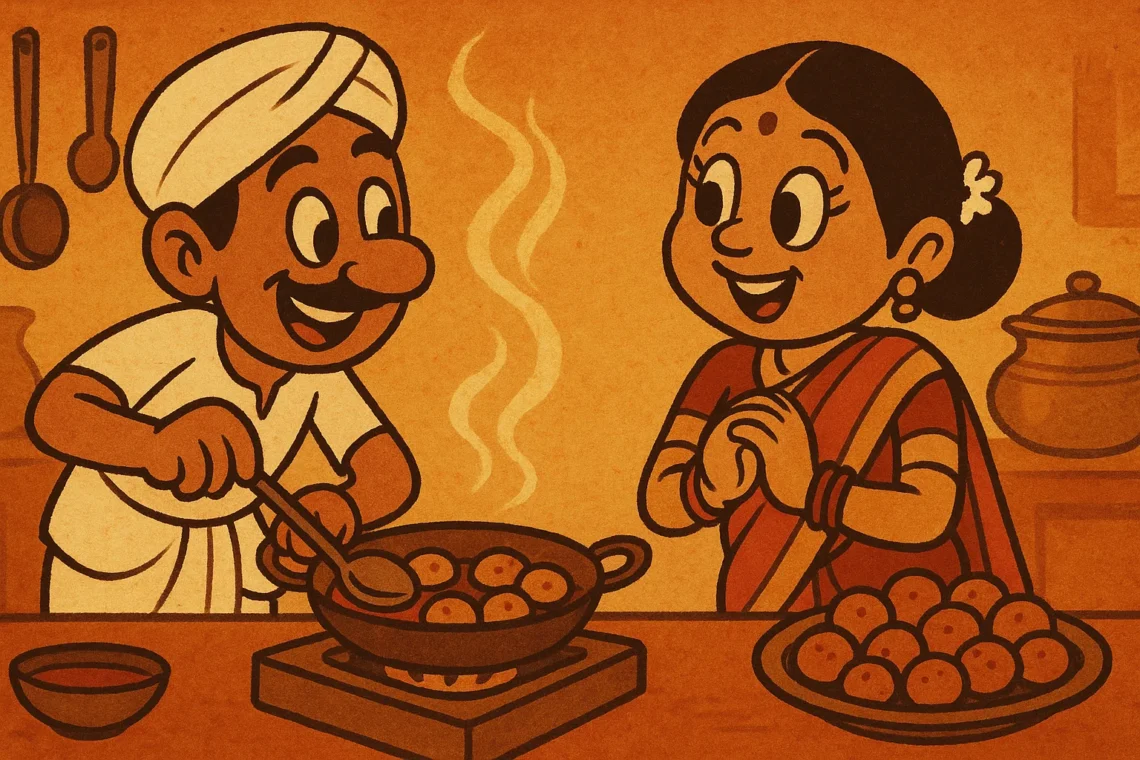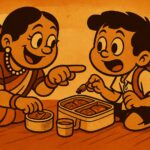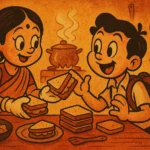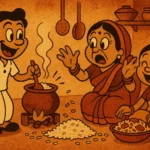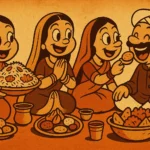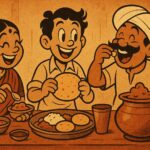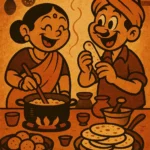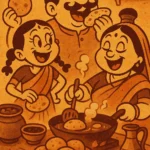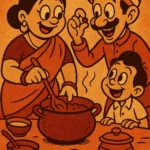It wasn’t a grand gesture. There were no candles, no fancy table settings, no Spotify playlist in the background. Just me, a small stove, a non-stick kadhai that had seen better days, and a heart full of anxiety. The first time I cooked for someone I loved, it felt less like a romantic act and more like an exam I hadn’t studied for. But instead of being graded on syntax or chemical formulas, I was being judged on salt levels and whether the rotis puffed.
We had only been dating a few months. The kind of newness where every text still felt exciting, and every silence made you spiral a little. She was coming over for dinner — a casual plan we had made after a long walk through South Austin, where she mentioned missing home-cooked Indian food. I volunteered with more confidence than I had any right to. “I’ll cook,” I said. My inner monologue immediately screamed, Idiot. You only know how to make eggs three ways.
The Menu of Mild Panic
I decided on something I thought was manageable: aloo gobi, masoor dal, and rotis. In hindsight, this was ambitious. Potatoes are forgiving, but cauliflower can betray you. Dal has the emotional intelligence of a grandmother — it knows when you’re faking it. And rotis? Rotis are judgment incarnate.
I spent the afternoon chopping vegetables way too carefully, as if precision would compensate for inexperience. I kept texting my mom for dal ratios, and she kept replying with things like, “Just eyeball it.” Thanks, Ma. Super helpful.
By 6 PM, the kitchen was a warzone. The cauliflower refused to brown. The dal was too thin. I had rolled rotis in shapes that looked like countries not yet discovered. But I kept going, sweating both from the effort and the fear of disappointing her.
When She Arrived
She showed up in a loose T-shirt, with no makeup and a soft smile that made my panic recede slightly. I served the food with too many disclaimers: “It’s a little salty,” “I didn’t have hing,” “The rotis are… rustic.” She took a bite, closed her eyes for a second longer than usual, and said, “It tastes like something my brother used to make.”
I didn’t know how to respond. Was that good? Bad? Nostalgic? But then she had a second roti. And a third. And asked for more dal. And I realized: she wasn’t here to evaluate me. She was here to be with me. And the food — flawed, lopsided, overly garlicky — was just the language I had chosen that day to say: I care.
Cooking as a Vulnerable Art
There’s something deeply vulnerable about cooking for someone you love. You can’t hide behind pretense. You’re exposed — not just in skill, but in intention. It’s different from buying flowers or planning a fancy date. Cooking is personal. It’s your hands, your time, your energy. It’s a silent poem that says, “I paid attention.” And sometimes, it’s also a messy kitchen that says, “I tried.”
She helped me wash the dishes afterward. No fuss. No overthinking. Just two people, shoulder to shoulder, passing plates and laughing about the oddly chewy roti. That night, something shifted. We weren’t just dating anymore. We were building something — one spoon of dal at a time.
The Aftertaste of Firsts
We broke up a few years later, like many young relationships do — gently, respectfully, with the kind of ache that lingers more than it hurts. But I still think of that dinner often. Not because of the recipe, but because of what it meant. It was the first time I put my feelings into a frying pan. The first time I let someone see me stumble and serve it with rice.
Now, when I cook for someone I care about, I don’t panic over burnt edges or undercooked dal. I remember that night. I remember her smile, the way she wiped her fingers on her jeans before reaching for more sabzi. And I remember that sometimes, love doesn’t need to be perfect. It just needs to be served warm, with intention.
That was the first time I cooked for someone I loved. And even though the food was uneven, something about that meal — and that moment — felt whole.
Born in Mumbai, now stir-frying feelings in Texas. Writes about food, memory, and the messy magic in between — mostly to stay hungry, sometimes just to stay sane.

